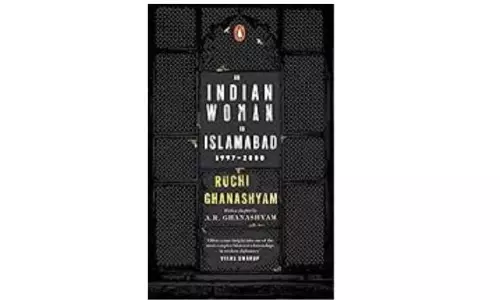The immigrant book I’d been waiting for
Making enthusiastic noises about books by Abeer Y. Hoque seems to be becoming quite a habit for me.;
Making enthusiastic noises about books by Abeer Y. Hoque seems to be becoming quite a habit for me. Just a few weeks ago, on this very page, I’d fervently recommended her first book, the intertwined short stories of The Lovers and the Leavers. Now I’m back with a whole-hearted recommendation of Hoque’s memoir, Olive Witch, a book that I was wary of before I started it (Will it be whiny Please, no. I can’t bear misery memoirs), but which, less than a chapter down, I didn’t so much devour as absorb into every cell of my body.
Why did I find it so absorbing The answer is simple. This is one of the most honest books I’ve ever read. And because of that, I feel a bit like a Shakespearean sonnet as I write this review, murmuring, “How do I love thee Let me count the ways.”
For a start, Olive Witch is the immigrant book I’ve waited years for: The one that tells the real story of a desi in foreign lands. In this case though, it’s three foreign lands, because nowhere is Hoque fully at home.
Her origins are complicated: She’s Bangladeshi, Nigeria-born, part Nigeria and part US-raised, and an American citizen. She considers Nigeria her homeland — she spent her childhood there, so it’s in her blood. But that’s also where she was a brown person in a black country. Her university-teacher parents are Bangladeshi to the core, having been part of the movement that turned East Pakistan into an independent nation in 1971. But she’s too foreign for her parents’ country, though she’s brown among browns. And when the Hoque family moved to the US and became American citizens after the troubles began in Nigeria, though her sister and brother settled quite easily, Hoque herself was a brown person in a white and, quite differently, black country. Confusion upon confusion. Big time identity crisis.
I’ve read any number of books about the immigrant experience — fiction and non-fiction, historical and contemporary — but none before this has truly shown me why I shouldn’t believe that ABCDs (America-Born Confused Desis — shorthand for all first-gen sub-continentals born and raised anywhere but on the sub-continent) only have first world problems. I’ve even had first-hand experience of ABCDs, and wondered why they behaved in ways that urban middle-class Indians, at least, stopped doing 40 years ago. So Hoque’s issues with identity, told so honestly, were a revelation. Now I get it. Now I understand. Thank you, Abeer, for that.
In Olive Witch, she also goes into her depression and attempted suicide, issues that are slowly entering the mainstream in India. These actually were the bits that made me wary before I started reading the book — I really do dislike misery memoirs.
But my caution wasn’t in the least bit justified. Hoque doesn’t go on and on and on about why she was depressed and how she felt when she came to after her overdose of sleeping pills. Instead, she deals with these issues just as part of her life, as indeed they are. At the end, she has to live, and she accepts that and gets on with it, helped a great deal by friends who are just as matter of fact about it, but who kept an eye on her after it happened.
Shall I keep counting the ways I love this book Here’s No. 3: Bangladesh. This is personal: Born and raised in Calcutta, I’ve always been curious about the country that — my father told me every time we drove on Jessore Road or to Dum Dum — we could get to if we drove just a few miles further.
Long before I understood the concept of borders, I was fascinated to know that India stopped somewhere and another country began immediately after. As I grew up, I was even more fascinated to learn that culturally Bangladesh is not very different from West Bengal. Which means I’m always enthusiastic to read about the nation so close to the city of my birth.
On a long visit to Bangladesh, Hoque explored Dhaka and her family village in just the same way I would: As an outsider who is also familiar with the local culture. This was sheer pleasure for me; I could see so clearly what she wrote about, it was like I was in Bangladesh myself.
And it was a joy to read how Hoque came to understand her father when he came to Bangladesh while she was there, seeing him in the environment where he was fully at home; seeing him as a complete person, not just as a fresh off-the-boat professor in America insisting, like most first-gen immigrants, that his children behave as though they had never left the country of their origin.
Can I give you another reason why I loved Olive Witch This is the last, I promise. It’s the writing. Yes, I said it before, but it’s worth repeating. Honesty just oozes from this book. I got no sense of exaggeration or understatement; I just got a very clear, very sharp picture of someone else’s world. Do you know rare that is No wonder I was so absorbed in the book.
I guess I don’t need to tell you what I feel you should do with Rs 350 of your money. So you do just that, and settle into Hoque’s world right away.
Kushalrani Gulab is a freelance editor and writer who dreams of being a sanyasi by the sea


